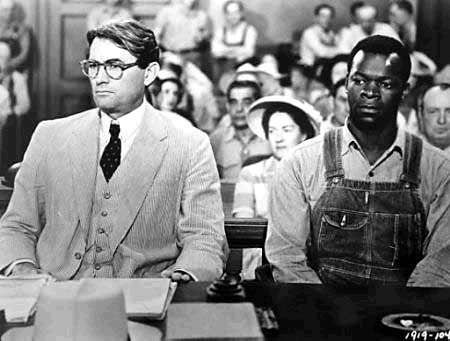
(Wikimedia Commons public domain image)
I received a message today from one Katie Witt, who is evidently the mayor of Kaysville, Utah, and a Republican candidate for a seat in Congress. Ms. Witt invited me to join her in a campaign to recall Mitt Romney from the Senate of the United States.
I replied to Ms. Witt, indicating that I would not join her campaign and that, now, I would certainly not be supporting her candidacy for Congress. I am, I said, a lifelong and very serious conservative, and I do not confuse conservatism with the cult of personality that is Trumpism.
Among the greatest American films ever made is the 1962 To Kill a Mockingbird. In 2003, the American Film Institute named Atticus Finch, magnificently portrayed by the late Gregory Peck, the greatest movie hero of the 20th century.
One of the most moving scenes in that powerful film comes in the courtroom, at the end of a trial in which Atticus, a mild-tempered widower not given to self-dramatization, grandstanding, or heroic poses, but a man of quiet and principled integrity, has unsuccessfully defended a black man, Tom Robinson, against the false charge of raping a white girl — an explosive matter, to put it mildly, in the racist rural Alabama of the early 1930s, and a deeply unpopular cause:
“Stand Up. Your Father’s Passin'”
I witnessed an Atticus Finch moment today.
While I believe that President Trump’s behavior in the matter of Ukraine was, beyond any reasonable dispute, wrong and reprehensible, I also believe that good and honest people can disagree about whether Mr. Trump deserved acquittal by the Senate. I myself am divided on the matter. I don’t fault Senator Mike Lee, the other senator from Utah, for voting against conviction. I like him. I’ve voted for him before and I intend to vote for him again. For that matter, like Mitt Romney, I have probably agreed with Trump administration policies more than I’ve disagreed with them. (Sorry, my left-leaning friends. I’m serious. I really am a conservative.)
But my admiration for Senator Mitt Romney today is enormous. He voted his conscience, knowing full well the vituperation and disdain that will inevitably be showered upon him in this very divided and uncivil Age of Trump. (And, yes, before you raise the issue: Nancy Pelosi’s ostentatious tearing up of the text of Mr. Trump’s State of the Union address was indecorous and petulant; she was being a jerk.) If I had a Romney sign, I would put it out on my lawn today.
I was impressed and even moved by his remarks on the floor of the Senate:
“Full Transcript: Mitt Romney’s Speech Announcing Vote to Convict Trump”
Here’s some useful background and commentary:
The Atlantic: “A Profile in Courage: Senator Mitt Romney’s decision to vote to convict President Donald Trump is an extraordinary act.”
National Review: “‘Mitt Romney. Not One of Us.’”
And I’m proud of this, too:
“Donald Trump’s Mormon problem continues, new study shows”
Will Utah pay a price for Senator Romney’s vote, and for the (relative) resistance of Latter-day Saints to Trumpism? Perhaps. He is, umm, suspected of occasionally holding grudges.
If it happens, that will be unfortunate. But it will be an honor to pay the price.












